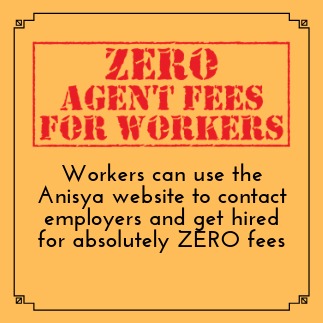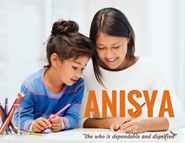Skilled, educated Filipino maids are becoming scarce
Article taken from http://www.straitstimes.com/the-big-story/asia-report/philippines/story/skilled-educated-filippino-maids-are-becoming-scarce-201#sthash.apCgCaXJ.dpuf

This file picture shows a crowd opposite Lucky Plaza in Singapore on 9 March 2014. The place is a popular hangout for maids from The Philippines. Recruitment industry consultant Emmanuel Geslani says nowadays, most of the maids going to Singapore come from the poorest regions in the south, like Maguindanao province, where three in five live below the poverty line. -- COPYRIGHT: SPH
By Raul Dancel, Philippines Correspondent In Manila
If it had been 10 years earlier, Ms Rosalyn Camcaman would have grabbed at the chance to work as a maid in Singapore.
But things have changed, and Ms Camcaman would rather stay in Laguna, a largely agricultural province south of Manila, and run her Internet cafe.
“The salary in Singapore is not worth what I will have to give up,” she said. She has a two-year-old daughter.
Ms Camcaman would have been a shoo-in as a maid. She is 28, has a degree in education, has a good command of English, and has been apprenticed through most of her teenage life in the ways of domesticity by her mother, an excellent cook and homemaker.
But the likes of her are no longer enticed by what two decades ago had been the Singapore dream: a job that paid six times what most Filipinos at the time made, an escape from an impoverished nation that offered few opportunities, even to the educated.
Ms Camcaman said she earns about 10,000 pesos (S$350) to 15,000 pesos a month from her Internet shop, about the same as what a maid in Singapore gets.
It isn’t much, but it’s just extra income, she said.
Her husband works as a machine operator in Dubai. He provides most of the family’s income.
“Even if I had opted to teach, I’d still make more than I would have in Singapore,” she said.
Filipinas began arriving in Singapore as maids in 1984, beginning with just 5,800 that year but with numbers ballooning to 60,000 by 1994.
Labour department data for 1994 showed that four in five came from the more developed island of Luzon and three in 10 had lived in metropolitan Manila, the capital region.
Sixty-six per cent of the women were married, and most were between 20 and 29 years old. Over half had a college or university degree or had at least some undergraduate education. One in three had some years of high school education, and only 12 per cent did not progress past primary school.
In the years after 1995, the demographics largely remained the same, except that the median age shifted to the 30-40 range.
But growing prosperity, better job opportunities and rising wages in the Philippines have changed things. Its economy has averaged 6.3 per cent growth in the last four years while the minimum daily wage has nearly tripled from 165 pesos in 1996 to 466 pesos as of last year. .
Teachers now earn over 18,500 pesos. A booming business process outsourcing sector is also providing job opportunities to new graduates, with an average salary of 57,000 pesos.
Now, most of the maids going to Singapore come from the poorest regions in the south, like Maguindanao province, where three in five live below the poverty line, said recruitment industry consultant Emmanuel Geslani.
The new recruits are also younger – 18 to 29 years old – as the pool now comprises women who have dropped out of school and are unable to secure even part-time jobs.
By and large, said Mr Geslani, Singaporeans, have had to lower the bar, with skilled, educated maids becoming scarce.
“Now, as long as the maids can speak and write English, it’s okay with Singaporeans,” he said.
*See more at: http://www.straitstimes.com/the-big-story/asia-report/philippines/story/skilled-educated-filippino-maids-are-becoming-scarce-201#sthash.Hwcuu0Ve.dpuf
View all posts in Anisya Blog
Posted on 20 Aug 2014

Help FDWs avoid debt
Anisya can help with the MOM paperwork

Found a suitable worker on Anisya? We can help with the MOM paperwork. Our service fee is $450. Click here for more info.
Full service hiring available

Need to hire an FDW in a hurry? Let Anisya help you with screening, short-listing and scheduling interviews with workers, and managing all the MOM paperwork formalities! More details here.
Anisya Web Services works in partnership with Anisya LLP (MOM License 12C5866) for MOM related transactions.
Anisya is a proud Social Enterprise member of the Singapore Centre for Social Enterprise (raiSE) and the Business For Good community which promotes the use of business for social impact.
